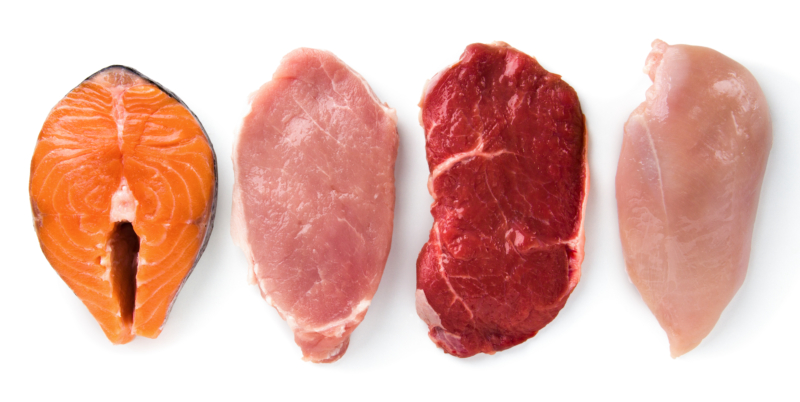As you embark on the carnivore diet, prioritizing potassium intake becomes paramount for maintaining electrolyte balance and overall well-being. While potassium is commonly associated with plant-based foods like bananas and leafy greens, it is equally achievable on a meat-based nutrition plan. Let’s delve into the myriad ways to ensure adequate potassium consumption while embracing the carnivore lifestyle.

Image: www.doctorkiltz.com
Understanding Potassium’s Essential Role
Potassium, a vital electrolyte, plays a crucial role in various bodily functions, including:
- Maintaining fluid balance within cells
- Regulating heartbeat and blood pressure
- Preserving healthy muscle function
- Supporting digestive health
Potassium Sources on a Carnivore Diet
Unlike the omnivore or vegan diet, the carnivore approach limits food sources to animal products. Fortunately, there is an array of meat options that offer substantial amounts of potassium, such as:
-
Organ Meats (Liver, Kidney, Heart): Offal meats are nutritional powerhouses rich in potassium. For instance, 100 grams of beef liver contain approximately 350 milligrams of potassium.
-
Fish (Salmon, Cod, Mackerel): Fish, especially fatty varieties like salmon and mackerel, are excellent sources of many vitamins, minerals, and omega-3 fatty acids. A 100-gram serving of cooked salmon can provide around 450 milligrams of potassium.
-
Bone Broth: Simmered bones release valuable minerals into the broth, including potassium. Beef bone broth offers approximately 150 milligrams per cup.
-
Pink Himalayan Salt: This unrefined salt is not only a flavor enhancer but also contains trace amounts of essential minerals, including potassium (approximately 100 milligrams per teaspoon).
-
Salt Substitutes: Some carnivore-friendly salt substitutes combine potassium chloride with sodium chloride, providing a balanced electrolyte profile. Check labels for potassium content.
Weekly Potassium Recommendations and Monitoring
The recommended daily intake of potassium varies based on age, gender, and individual needs but typically ranges from 3,500 to 4,700 milligrams. While on the carnivore diet, it can be more challenging to meet these recommendations solely through food consumption.
Monitor electrolyte levels, especially during the initial adjustment phase, to ensure sufficient potassium intake. Mild symptoms of potassium deficiency (hypokalemia) may include fatigue, muscle weakness, and cramps. It’s always advisable to consult with a healthcare professional before making significant dietary changes.

Image: carnivoredietnews.com
Expert Insights and Practical Tips
-
Incorporate Organ Meats: Expert nutritionist Dr. Stephanie Estima recommends making organ meats a regular part of your carnivore diet plan. Liver and kidney meats are particularly high in potassium.
-
Add Bone Broth to Your Routine: Wellness advocate Dr. Kirk Parsley advises consuming bone broth daily as it provides electrolytes like potassium and collagen, which supports gut health.
-
Use Potassium Salt Substitutes Wisely: Health coach and nutritionist Shanna Nemrow suggests cautiously using salt substitutes to supplement potassium intake, mindful of potential salt sensitivity and the importance of maintaining sodium balance.
-
Consider Potassium Supplements: If dietary intake and monitoring efforts are not sufficient to meet potassium needs, consider consulting with a healthcare professional about potassium supplements.
How To Get Potassium On Carnivore Diet
Conclusion
Navigating the carnivore diet while ensuring adequate potassium consumption requires careful planning and awareness. You can enjoy the benefits of the carnivore diet without compromising electrolyte balance by incorporating organ meats, fish, bone broth, and pink Himalayan salt into your meals. Monitoring potassium levels and considering supplements when necessary are advisable for optimal health outcomes. Embrace these strategies and embark on a carnivore lifestyle focused on nutrient density and well-being.





:max_bytes(150000):strip_icc()/ideas-for-removing-odors-from-wood-3536463-FINAL-54b76a445dfb41acb4ba0c413bd80e80.png?w=740&resize=740,414&ssl=1)

